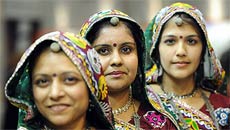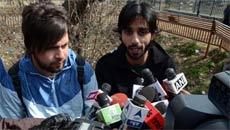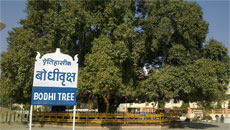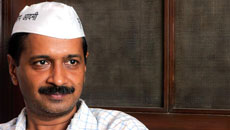The Election Commission (EC) in Delhi Monday directed the excise and the income-tax departments to strictly monitor the flow of illegal alcohol and flow of money in the national capital prior to the Lok Sabha polls.
Delhi's seven constituencies go to polls April 10.
In a clear instruction, both the departments have been asked to closely scrutinise the rise in sale of liquor at all the shops located in the seven Lok Sabha constituencies and also distribution of money among the people.
"Both the departments under the Delhi government have been entrusted with this task," said Delhi's Chief Electoral Officer Vijay Dev.
He said if the sale of liquor is found to be 30 percent more than that of the previous month, the shop will be identified and a thorough investigation carried out.
"The consequences may even lead to termination of the licence of the liquor shop," Dev told IANS.
"Liquor shops in the sensitive constituencies will be under special monitoring and CCTV cameras will be installed in the entire area," he added.
The income-tax department will set up air intelligence unit at Delhi airport to keep an eye on the movement of cash.
"If cash exceeding Rs.10 lakh (CAD $18,235) is found, the income-tax department will take action and inform the Delhi Election Commission," said Dev.
As per an EC instruction any candidate making a transaction of more than Rs.10 lakh will have to give the record of the entire money used.
Dev said in the coming days, the EC will conduct meetings with bankers from both private and nationalised banks to make the monitoring process more transparent by giving the transaction records of the candidates.
Political parties have also been warned against defacing public and private properties during the election campaign.
Till now, district election officials have removed 472 hoardings of political parties.
All the district election offices have been given directions to set up a model polling station, said Dev.
He added a total of 70 model polling stations will be set up in the national capital for the upcoming general elections.
In the 2013 Delhi assembly elections, nine model polling stations were set up, one each in the nine districts of the national capital.
Model polling stations are polling booths that are well equipped with better infrastructure, good crowd management, prominent signages and first-aid facilities.





